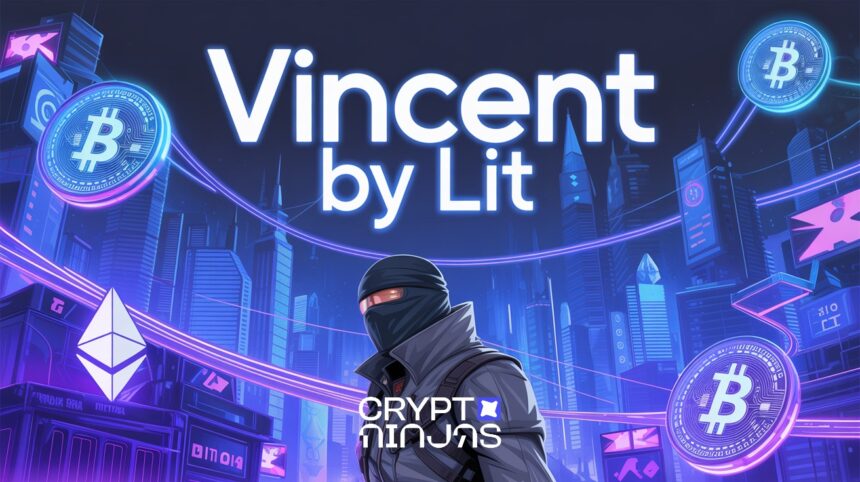Lit Protocol has unveiled the Early Access launch of “Vincent,” a groundbreaking platform that empowers AI agents to execute real DeFi transactions under strict, user-defined rules. This innovative system allows agents to perform significant financial operations such as borrowing, swapping, and bridging funds across major decentralized finance (DeFi) platforms like Aave, Uniswap, and deBridge, all while maintaining essential security measures.
Vincent marks a significant advancement in the realm of decentralized automation, transitioning AI-powered agents from conceptual models to practical applications. With this new framework, users can harness the full capabilities of AI agents that not only simulate trading activities but also execute real transactions with transparency and verifiability within user-set parameters.
The Vincent platform stands out as a developer-centric solution, offering a non-custodial approach where AI agents interact directly with DeFi protocols using authentic permissions and real assets, without necessitating the surrender of private keys. This development has the potential to redefine how individuals and applications automate their financial strategies securely.
Vincent introduces several key elements that set it apart from existing centralized infrastructures or custom-built bots. Among these features are:
- On-chain guardrails: These safeguards ensure that user-defined permissions are respected.
- Decentralized key management: Utilizing Lit’s threshold cryptography network to enhance security.
- Composable “Abilities” and policies: Each agent action is governed by specific on-chain rules, ensuring compliance with user preferences.
Vincent’s operational model is built around three main components that emphasize secure AI agent functionality:
-
Apps: These are packaged configurations that developers can implement. For example, an app like Vincent Yield automatically directs user stablecoins to high-yield pools, adhering to established policy limits.
-
Abilities: These denote the specific operations that agents can perform, including borrowing from Aave or swapping on Uniswap. Each ability is versioned and requires user permission at the time of connection.
-
Policies: On-chain rules that dictate when and how abilities can be executed. Policies may include spending limits, slippage caps, time restrictions, token allowlists, and more, providing a comprehensive framework for transaction management.
With the official Early Access launch of Vincent, developers can now benefit from integrations with major platforms such as Morpho for lending, Aave v3 for lending markets, Uniswap v3 for swaps, and deBridge for cross-chain transfers. The Vincent SDK is available for developers to craft their own agents, and the Model Context Protocol offers a conversational interface for goal-setting and permissions.
According to Chris Cassano, co-founder of Lit Protocol, every action made by an AI agent is explicitly permissioned, and all policies are enforced on-chain through a decentralized threshold network, thus mitigating potential risks associated with unauthorized actions.
Vincent represents a substantial step forward in DeFi, bringing forth a robust framework that enhances the reliability and efficiency of autonomous agents. While the idea of such agents has existed for some time, previous iterations were primarily limited to prototype demonstrations. Vincent differentiates itself by ensuring that operational safeguards are non-negotiable, effectively preventing abilities from being activated unless on-chain policies are met, while giving users complete control without exposing their private keys.
The versatility of the Vincent architecture extends beyond DeFi, indicating potential applications in traditional finance, SaaS automations, and even social media bots, making it a promising tool across various sectors. DeFi developer David Johnson of Morpheus highlighted the importance of secure capabilities as intrinsic to all agents, underscoring Lit Protocol’s approach to creating more reliable solutions than conventional ones.
Looking ahead, Vincent’s roadmap includes support for Solana, AI-driven policy suggestions for streamlined configuration, and shared agent registries that enhance the portability and verification of agent credentials across platforms.
By abstracting complex key management processes and enabling programmable policy enforcement, Lit Protocol is poised to establish Vincent as a universal automation layer for secure online interactions, beginning with the crucial and often risky domain of DeFi.







